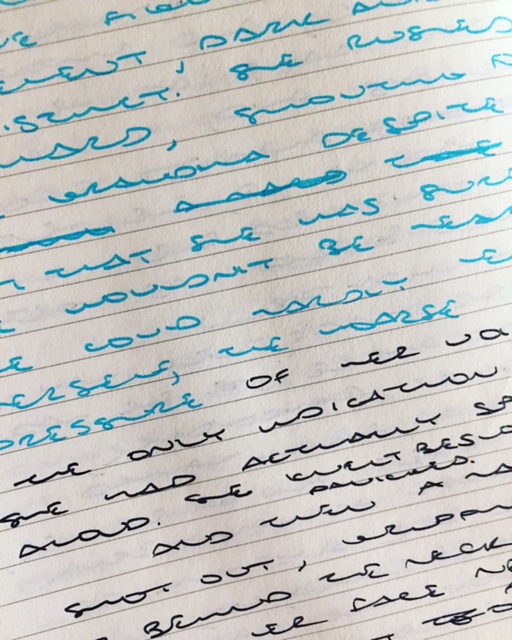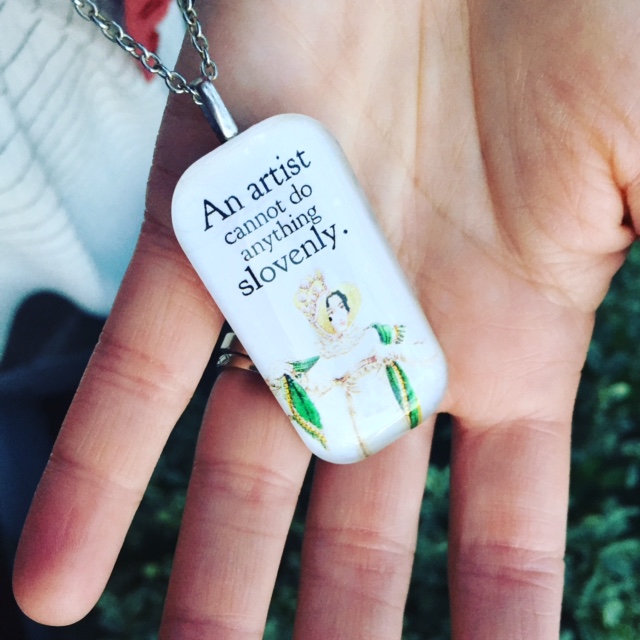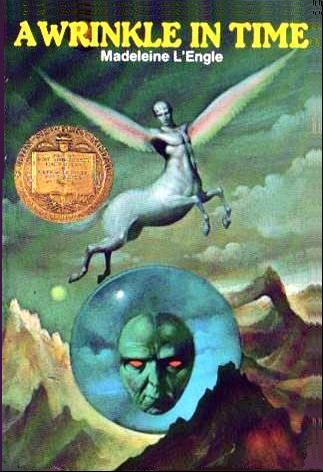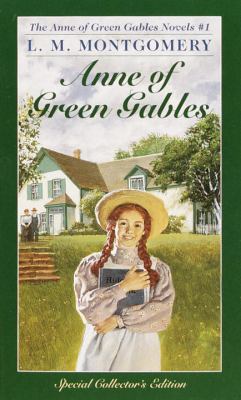When I had time for journal-based roleplaying games, one of my first and favorite things to do in developing a character was to think about what they looked like. I loved scrolling through icon collections of lesser known actors and actresses, or beloved familiar faces in unique roles, and choosing just the right person to play my version of Padma Patil or Eddie Carmichael (had a soft spot for roleplaying Ravenclaws, even though I'm pretty sure I'm a Gryffindor). Anyone who has ever played in one of these games, or ever seen a movie that's been woefully miscast, knows what it's like to see someone playing a character who is just all wrong.
Strangely enough, picturing my characters is not something I do much in the beginning. Maybe it's because all of the shit I gave myself as a young writer for describing what people looked like by letting them look in the mirror, or because I immediately drop any book that tells me what a character is wearing or describes their "tresses" within the first 10 pages. Still, I know that it's important to have a few details to go on, and that usually those details belong somewhere in the beginning of a book.
Writing in first person presents a unique challenge when conveying what your main character looks like, but I'm particularly fond of how Eiren describes herself and her siblings in the first chapter of The Hidden Icon, when looking at her mother she,
"... studied the vault of bones beneath her skin, like mine the color of the honeyed beer she and my father enjoyed, the taste of which had always paled considerably when compared to the thrill of pilfering some from their reserve."
I wish now that I'd had resources like Writing with Color when I was working on the first book, because it's incredible. Even though it's fantasy-land, it's important to check assumptions and language when it comes to writing characters of color. For me, Eiren has always been a brown girl, and I hope that she was always for readers, too.
We don't get much else about Eiren in the first few chapters, beyond that she's a small woman, made smaller by the challenges of living in exile. Again, she sees herself in comparison to others, this time, when she observes Morainn rising from a chair and feels,
"... weak as a foundling child. Morainn had eaten well and stretched her legs in the flower of her youth, and I’d spent the last five years living like a rodent in a cave."
I did give Gannet a little bit more structure in the beginning, though, even with half of his face obscured for the reader and Eiren both.
"The man wore a half-mask roughed of some metal fitted to his features, riding the bridge of his nose and curving back to his ears. It was the mask I saw and little else, registering but barely the sandy hair, the thin, blank line of his lips.
He was less formidable in proximity than he had been at a distance. I could not keep from studying his face as the moment lengthened to discomfort, the rough lip of the mask below his cheekbones, splitting his brow above. His hair strayed from where it had been smoothed back, softening his unnaturally muted expression."
Despite the fact that I have a lot more to go on with Gannet's description, or maybe because of it, he's always been harder for me to point to a real person and say, that one. I don't think he's traditionally handsome, and I picture him with a wide, expressive mouth that would probably be goofy on someone who smiled a lot. His nose is severe because frankly, I like noses.
And Eiren, well. She's beautiful but melancholy, too. She's also never had cause to pay attention to how her hair or body is dressed, allowing an innocence to persist in her appearance that might not otherwise for someone of her age and experience.
Most recently, I've been pairing these two together in my mind and feeling pretty confident about their potential.
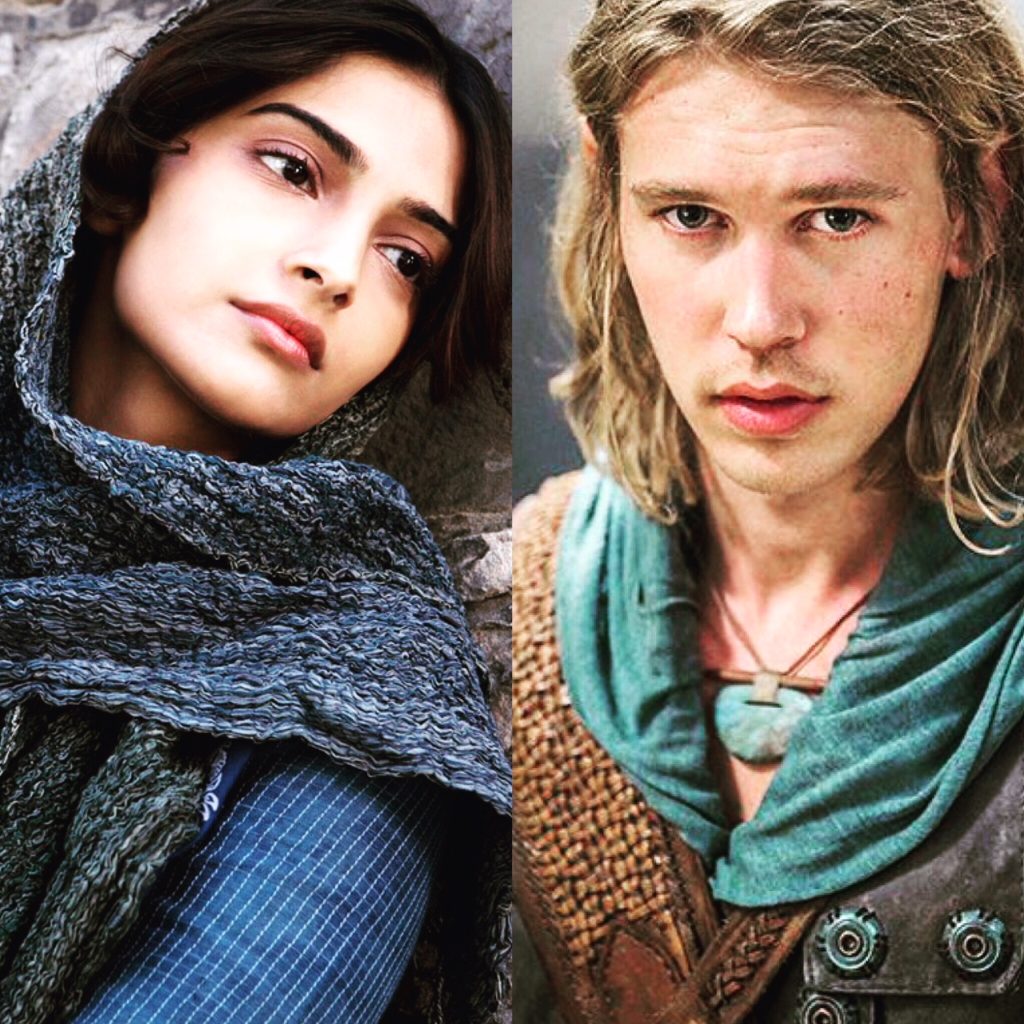
Sonam Kapoor is just the most glamorous usually, which I feel like works for Eiren's sisters but not so for her. But when I saw her in Saawariya, I just felt like there was a dreamy quality about her, an intense grace and depth that felt right for Eiren. As for Austin Butler, his model face is all wrong for Gannet and I would never have looked at him twice if it weren't for a laundry-filled Sunday when I decided to give The Shannara Chronicles a watch. Dude has got so much more going for him when he's walking and talking and, you know, emoting.
And not to bribe or spoil folks or anything, but if you're interested in seeing a bit more of Gannet's face, you should probably make some time to read The Dread Goddess.
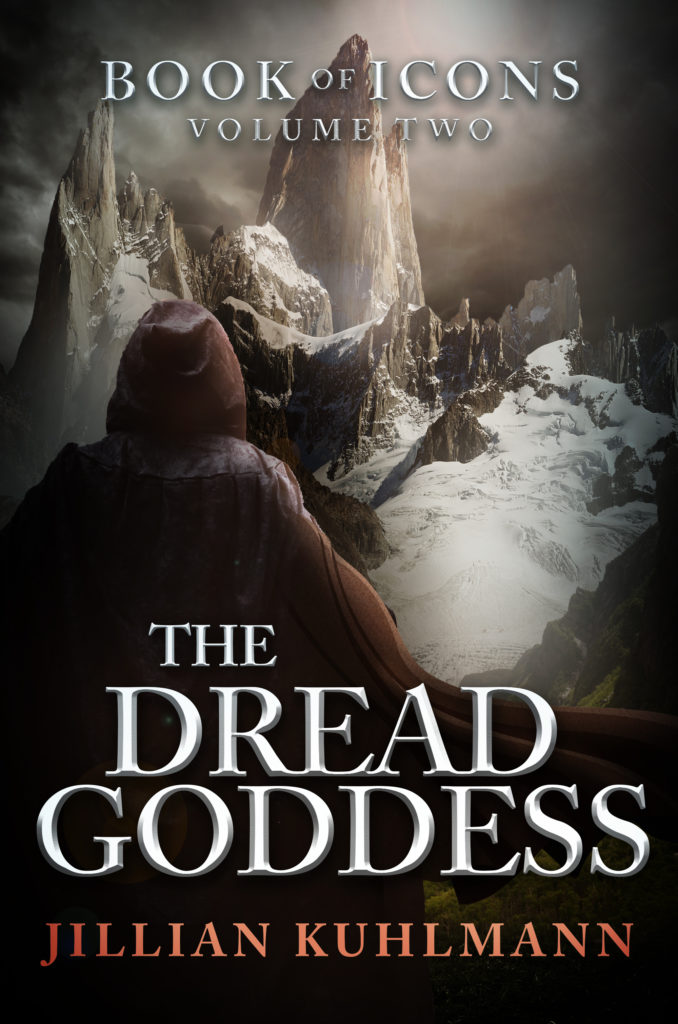
So, what do you think? Who would you cast? And what about Morainn, Antares, Imke, or Jurnus? Clearly I ought to give them a think next.
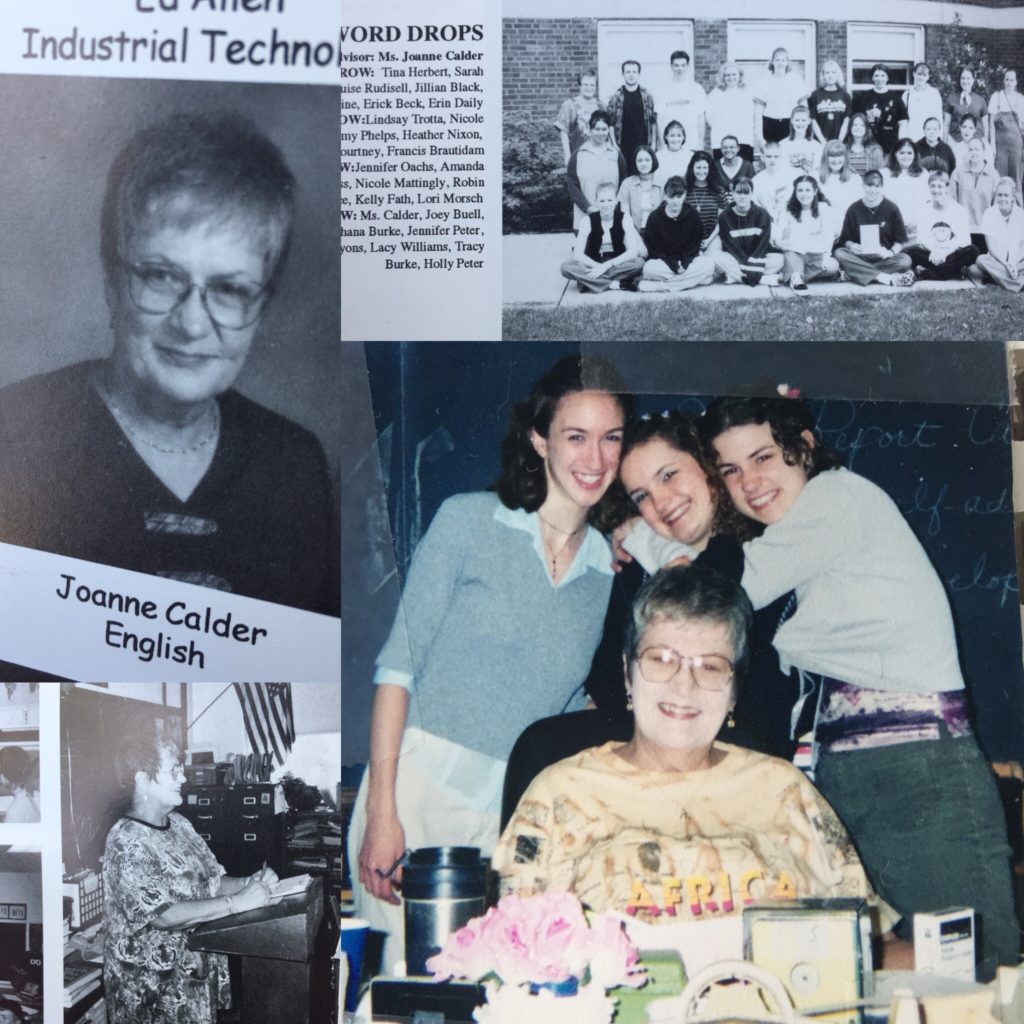

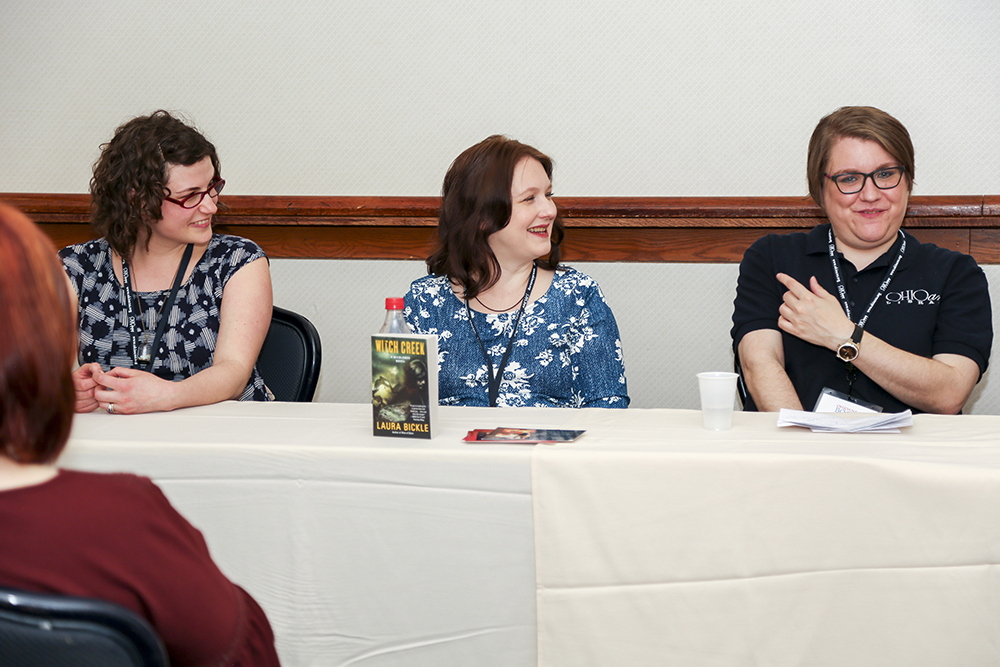

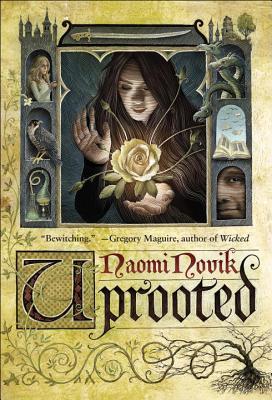
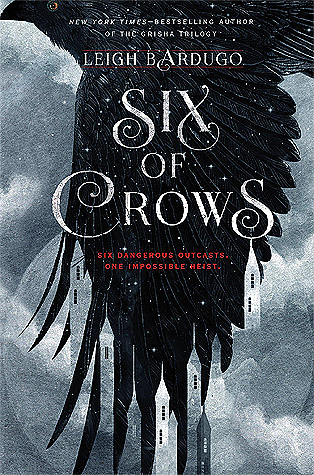

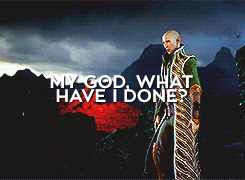
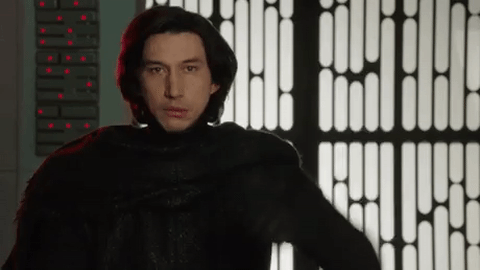


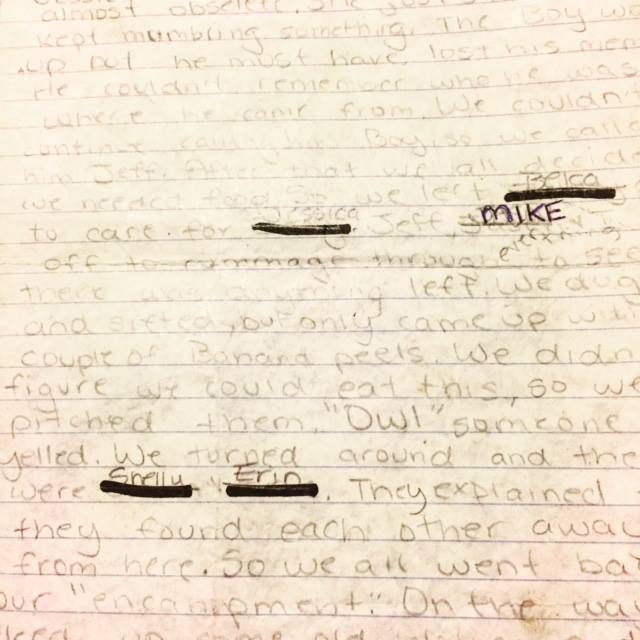 In the seventh grade, I wrote what I realize now was basically
In the seventh grade, I wrote what I realize now was basically 